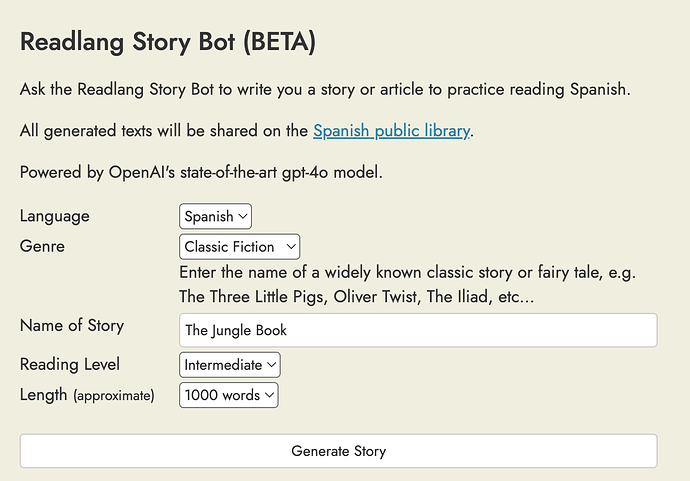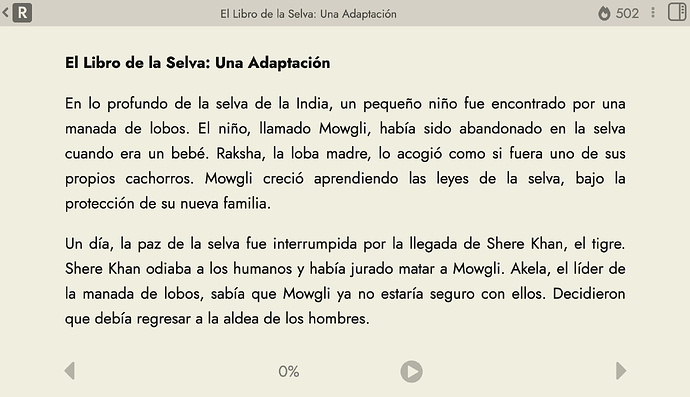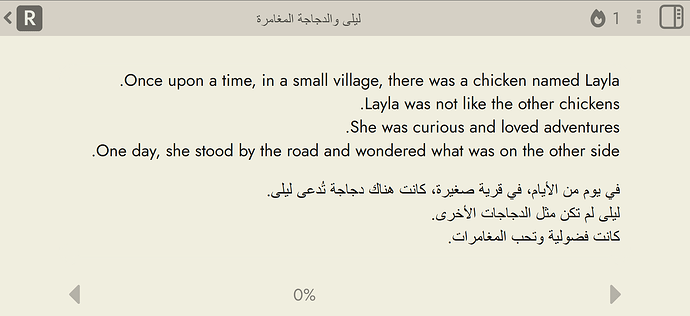Just to say that you can generate stories from vocabulary lists. I already do this directly on ChatGPT, so I was interested to see if it would work on Readlang’s bot, and it does. My prompt is "Please write a short story in (target language) including as many of the following words as possible. The form of the word may be changed - " + list of words. I’ve tried a comma-separated list, and copying from a column, and both seem to work. Generally, on ChatGPT at least, it manages to use the whole list. At the moment I’m trying it from vocab lists I’ve completed for Duolingo lessens. Here are some examples (Beginner selected):
Stories based on Duolingo Dutch units
Here’s one from my last 25 French words from Readlang, using Readlang’s own export words function, which takes seconds (not all used, but the vast majority are there)
tendre
couler
relever
raccourci
rapprocher
cric
bâche
insensées
prouesse
désaffectée
goulot
s’allégea
impérissables
chaudrons
chouannerie
métissages
haubans
épurées
élancées
désenclaver
toussota
remémorèrent
s’embourba
coffrage
Les chaudrons des souvenirs (Advanced)
And here’s one based on the following Spanish words (almost all used in one form or another):
granero,
a raya,
tirón,
advertir,
vendados,
picor,
chanchullo,
axila,
galimatías,
pueden irse al traste,
volvió a las andadas,
no cabía en sí de felicidad,
presumió,
sobaco,
rebosaba,
esculpidos,
alentadores,
desenrolló,
purpurina,
entretejido,
trasquiladas,
patinada,
se toparon con,
se ceban
pletórico de amor
El granero de los secretos en San Esteban (Advanced)
Incidentally, although I haven’t tried it with these vocab-based stories yet, I usually finish my prompt with:
“The story should be amusing and include lots of dialogues, using colloquial language and idiomatic expressions.”
And often this results in some interesting expressions.



